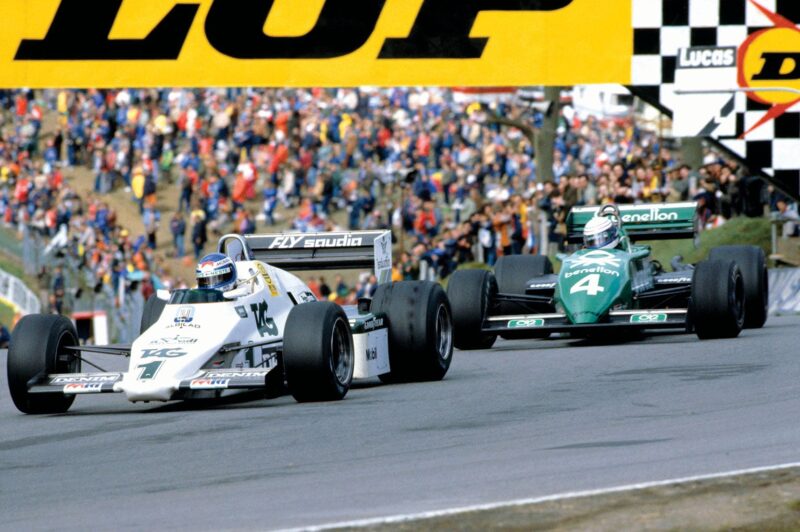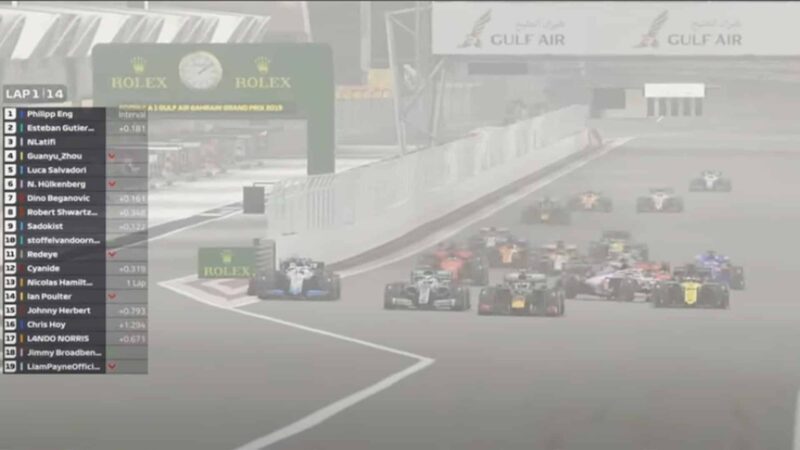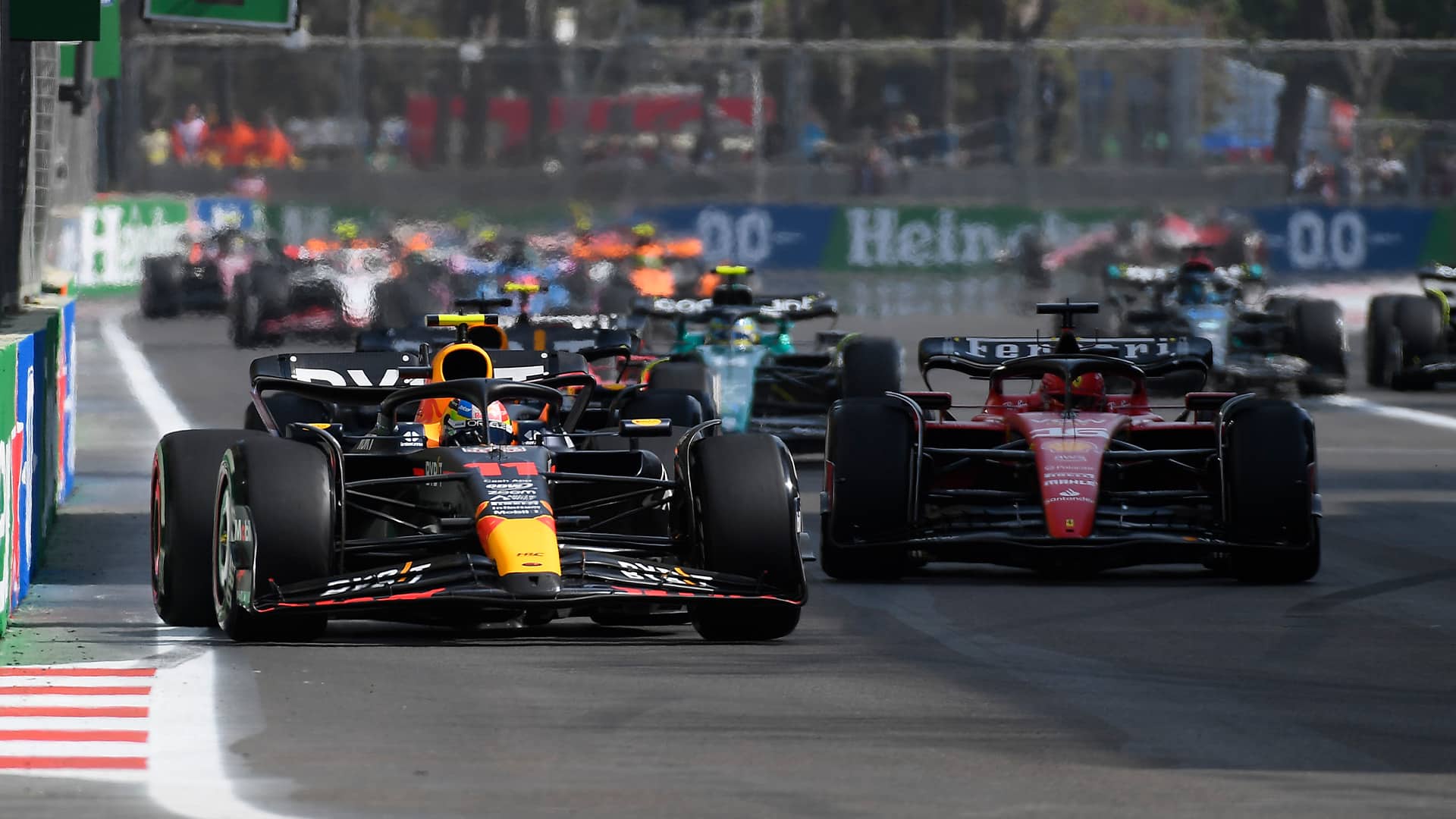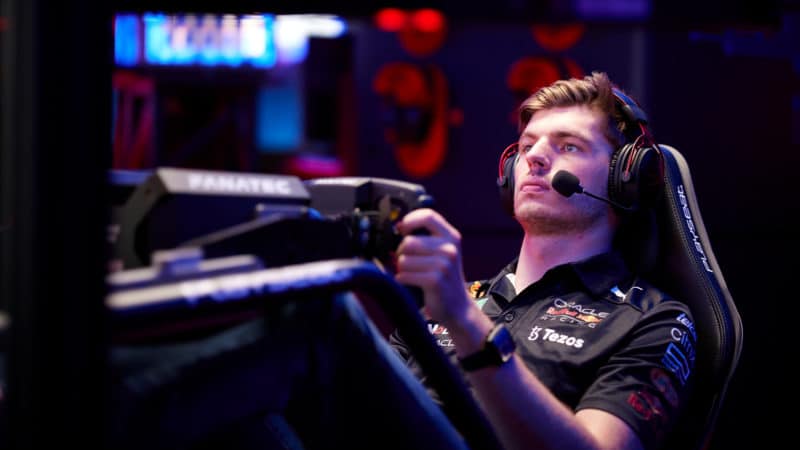It was the unknown that made events like the Race of Champions unmissable, particularly when it came to rookie drivers who were offered a chance to prove themselves. In 1971, Carlos Reutemann announced himself as an F1 prodigy, making a spectacular debut for McLaren on home soil in Argentina, finishing third behind Henri Pescarolo and Chris Amon. At the rain-hit International Trophy in 1978, Derek Daly shocked the paddock by leading the field for Hesketh on his debut before crashing out on lap 12 – allowing Keke Rosberg to claim his breakthrough F1 victory in a Theodore TR1-Ford.
Non-championship races were also an excuse for F1 teams to get experimental, with Stirling Moss piloting the only four-wheel drive F1 car to victory at the Oulton Park Gold Cup in 1961, and Lola taking its sole F1 victory in the 1962 2000 Guineas race, at the hands of John Surtees.
There’s no reason why an official virtual F1 racing series couldn’t offer much of the same: an opportunity for teams to test new drivers, while the series could trial altered formats.

Rosberg vs Sullivan in the 1983 Race of Champions
Motorsport Images
It’s already been done: when the Covid pandemic forced the cancellation of the early 2020 season, the Virtual Grand Prix series was born.
Across eight races, a total of 69 drivers took part in virtual F1 races from gaming rigs in their homes, while still providing entertainment for the thousands of online viewers. The field was headlined by current F1 talent such as Charles Leclerc, Alex Albon and George Russell – who was eventually crowned champion – but also contained appearances from former F1 driver Johnny Herbert, Real Madrid goalkeeper Thibaut Courtois and former Olympian Chris Hoy.
Adding a professional commentary team and hyper-realistic broadcasting, the series proved an entertaining alternative to the real thing.
F1 returned to regularly scheduled action a few weeks later when organisers found a way to restructure the calendar, but the success of the series is still felt to this day in F1’s own esport series, which attracts thousands of viewers per race.
Last week’s cancelled Emilia Romagna Grand Prix provided another opportunity for virtual racing to enter the spotlight, headlined by Max Verstappen and with a surprise visit by Lando Norris. Verstappen and Team Redline — the Dutchman’s esports team — hosted an online charity event to raise money for the storm-stricken Imola region, which saw a grid of drivers compete in four races, each in a different car. Admittedly, it was more focused on entertainment than hard-core racing — Norris jumped the start and causing carnage in a multi-car crash.
But the point still stands. Both events provided entertainment to thousands of fans on a non-F1 weekend without detracting from the World Championship — and costing the price of a simulator and an electric bill. So why not make virtual non-championship races a permanent addition to the F1 calendar?

Philip Eng leads the field at 2020 Virtual Bahrain GP whilst Nico Hulkenberg and Luca Salvadori collide
Gaps between races provide plenty of opportunity for non-championship races to make a return in virtual form, while not requiring the full-time commitment of drivers. With all 10 F1 teams obligated to take part, each could run a driver line-up composed of an existing driver and a talented hopeful — something that is currently limited to simulations and free practice sessions. For example, Red Bull could swap out Verstappen for talented junior Liam Lawson and McLaren could rotate its pairing with its IndyCar driver line-up, composed of Pato O’Ward or Felix Rosenqvist.
As the racing is online, track selections could also be limitless, meaning potential returns to Hockenheim or the Nürburgring for a German Grand Prix, and in-game settings would also allow for the cars to run closer together thanks to equal performance – something F1 is desperately crying out for.
With F1 consistently trying to shake up race weekends with new formats and rule changes, virtual non-championship races would provide a perfect test site – allowing organisers to gain theoretical feedback from drivers before implementing the changes into real life events.

The only real obstacle to implementing virtual non-championship races into the official F1 schedule is the willingness of teams and drivers — some of whom choose to host their own races already.
Partnering with streaming platforms such as Twitch or YouTube would make the races available to a wider community of viewers, whilst creating a platform for drivers and teams to prosper — even when bad weather or political turmoil causes real F1 races to go awry.
For a series that is increasingly looking to balance entertainment with the pinnacle of motor racing, a virtual component could be a popular addition for (some) fans without detracting from the World Championship itself.

